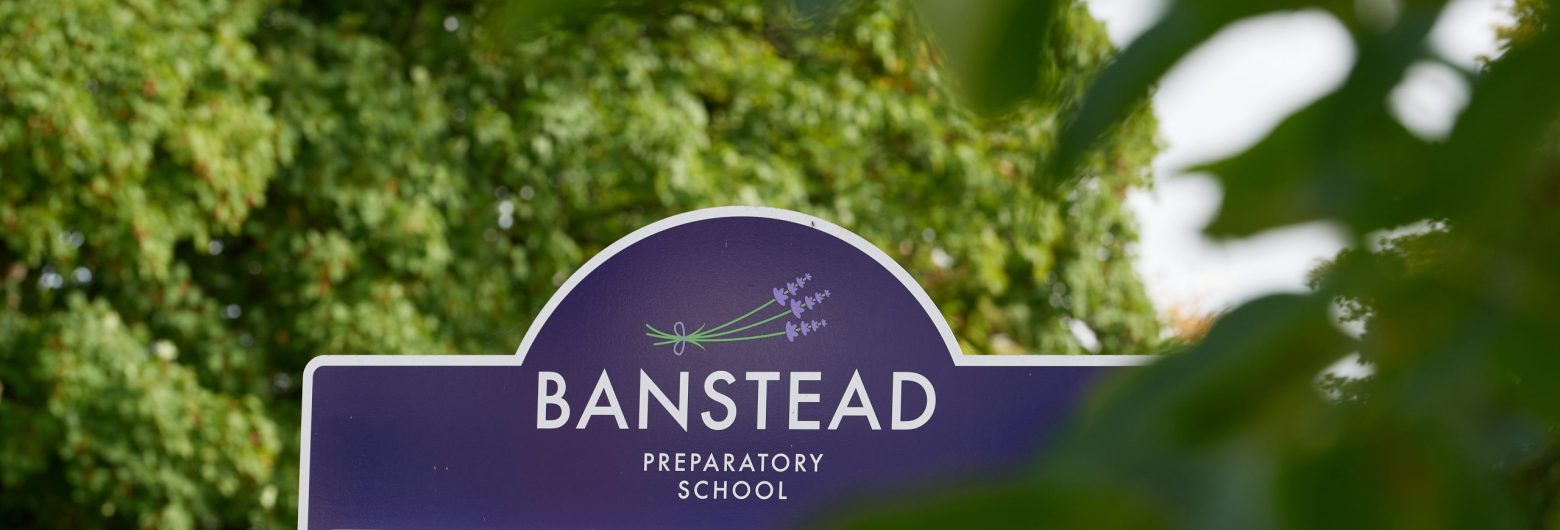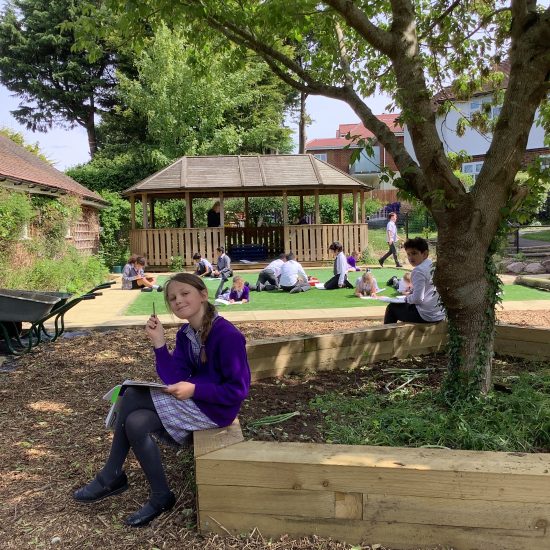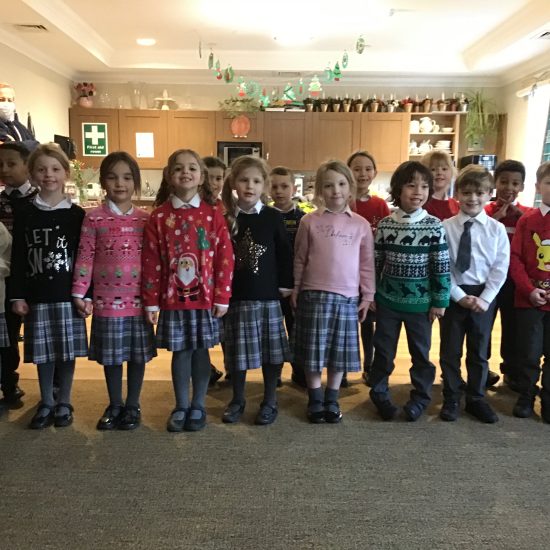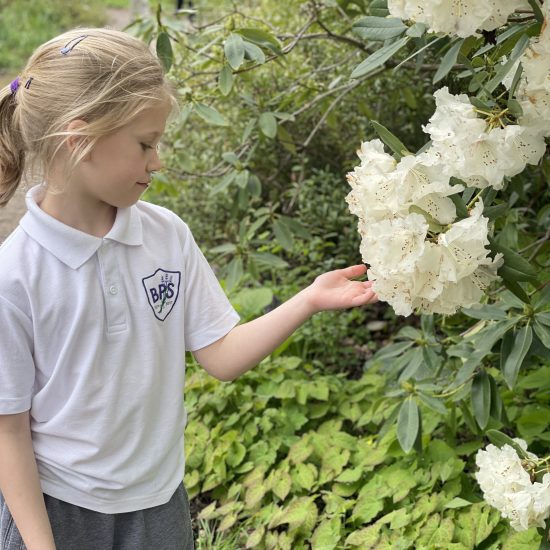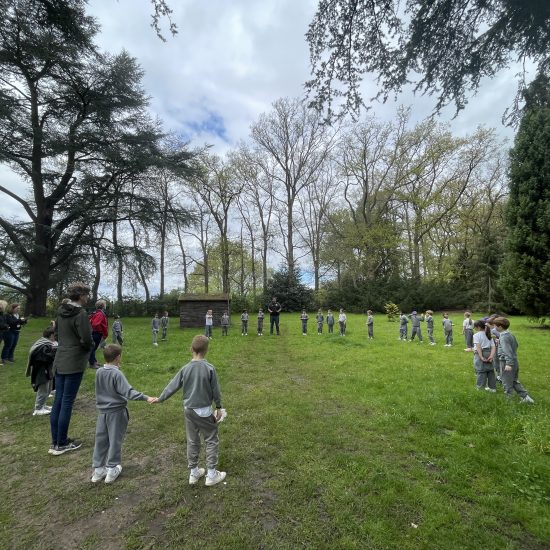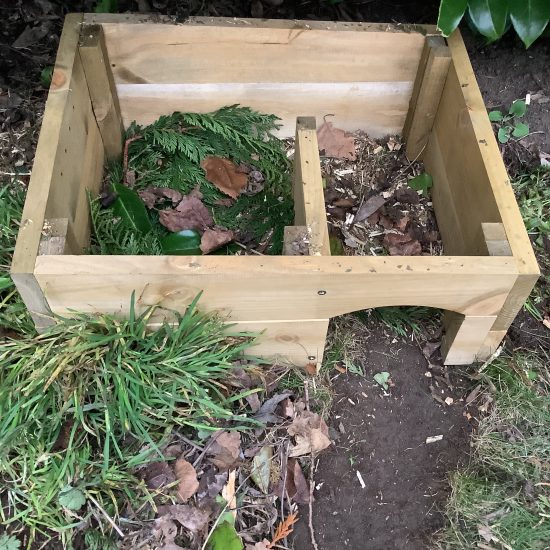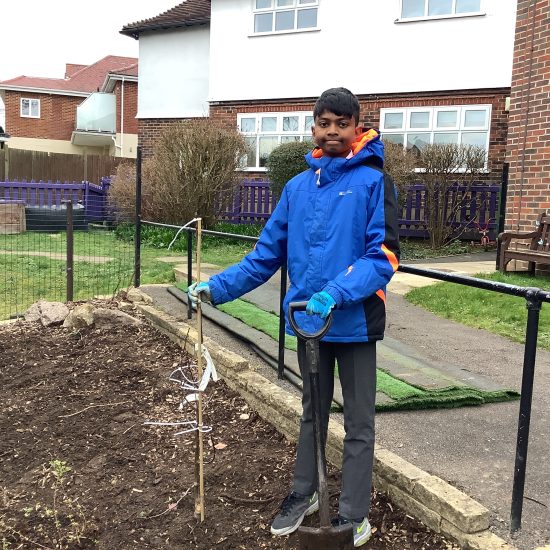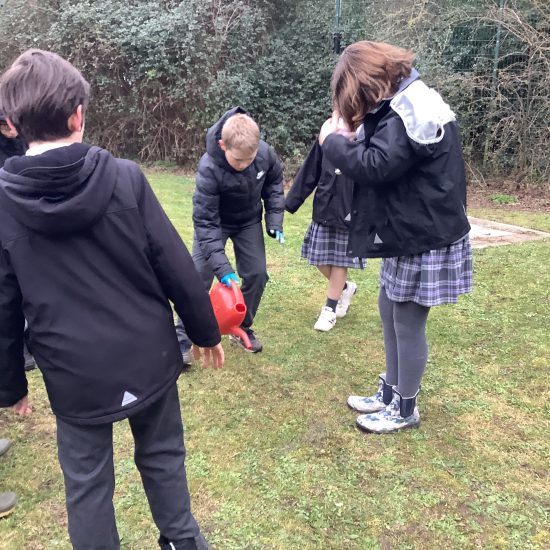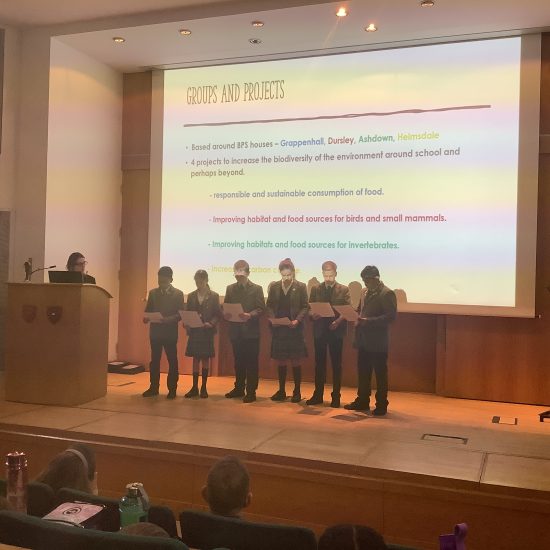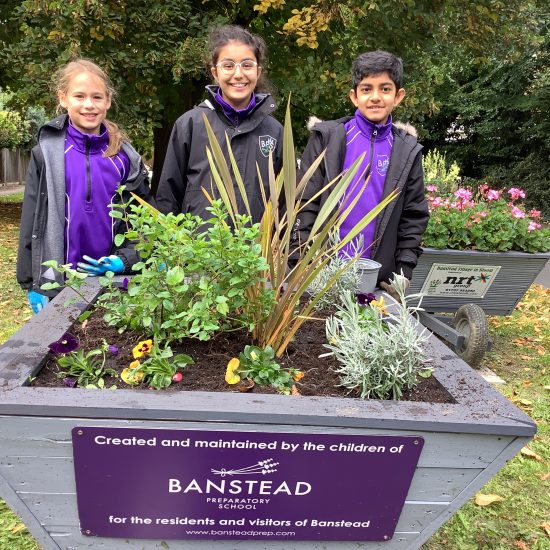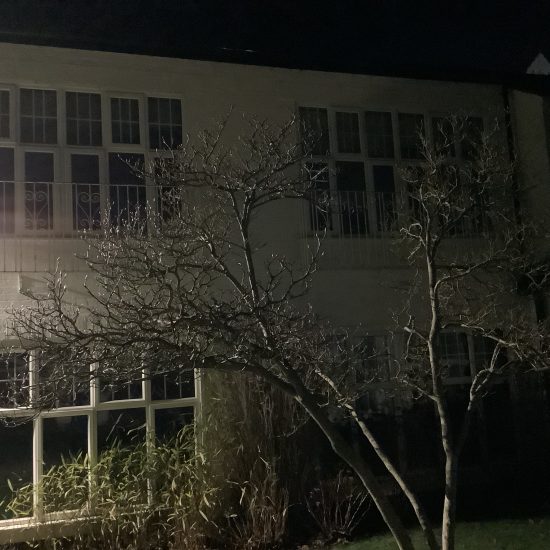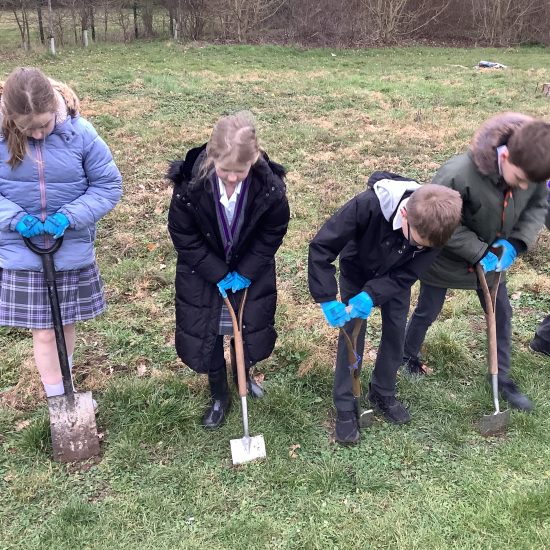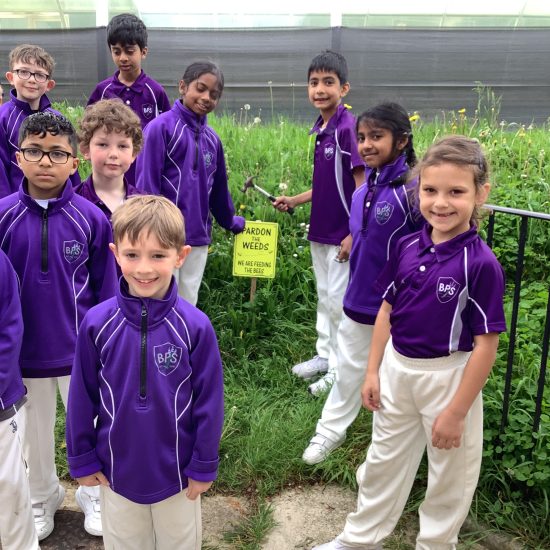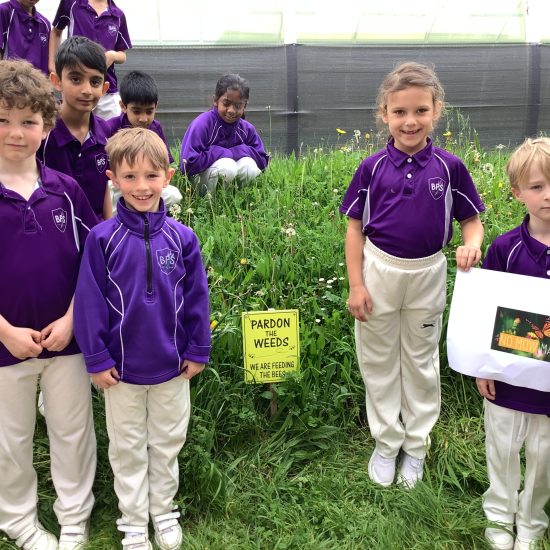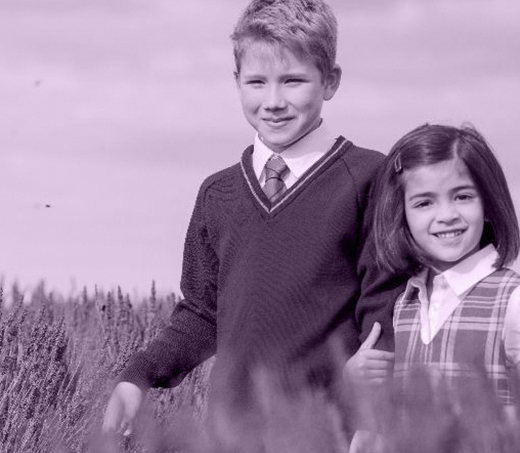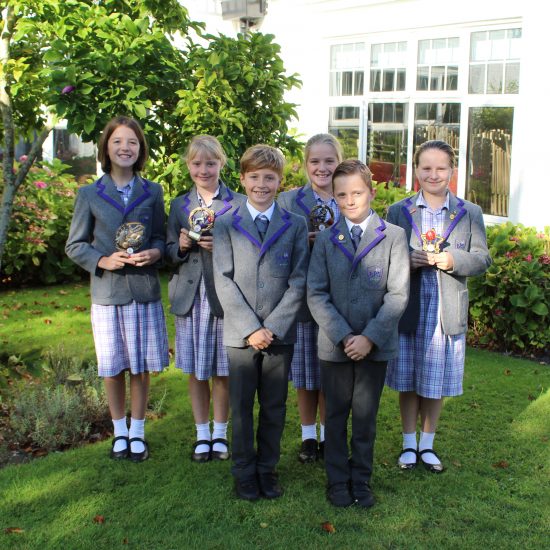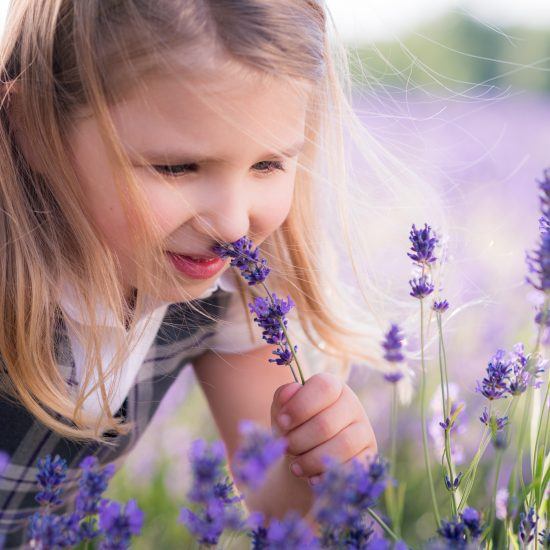Sustainability and Climate Action is important to us at BPS and we are taking steps to reduce our impact as a community.
What is sustainability?
In nature, each ecosystem has a carrying capacity – the maximum number of individuals that it can sustain. The population will fluctuate around this carrying capacity and, when numbers become too high, the population is naturally reduced. This is not the case for humans. We live in a world where humans are the dominant species; we evolved such that we have been able to increase our population to a point that is not sustainable, one which is effectively beyond that natural carrying capacity.
The resources we rely upon for our own existence are ultimately finite, so it’s important we seek to live sustainably – for us, for the species we share the planet with and for future generations. Living unsustainably not only threatens the lives of the animals and plants around us, but also the lives of our own species.
The BPS Climate Plan
There are three strands to our plan:
Community and culture
We are educating staff, children, and parents about what they can do to live more sustainably and to change the attitudes and behaviour of those both in school and in the wider community.
Curriculum
We are adopting the United Learning sustainability curriculum, which enables us to build and develop the concepts of biodiversity, climate change and living sustainable within our existing curriculum. Link to the UL slides that show the content for each year group.
School Site
We are reducing carbon emissions on school grounds through practical actions and improvements to our environment, including more efficient heating and lighting, reducing food waste and increasing biodiversity.
What sorts of things are we doing in school?
Here are just some examples of actions we are already taking to deliver our objectives:
Increasing biodiversity around the school site
Our outdoor learning space took shape in the Spring of this year with a weekend ‘planting party’ providing the final step to increased biodiversity and a habitat for many small creatures. The children are already enjoying this gorgeous space thanks to all the parents and staff that have worked so hard on making that possible!
The UL student leadership programme for Year 6 embraced the Dirt Is Good initiative, with four projects each focusing on improving the environment and sustainability of our school site including planting new hedging in the outdoor learning area, planting apple trees, raspberry bushes and rhubarb to be used by the kitchen and for cookery lessons, encouraging small mammals into the area by creating log piles and a hedgehog house and creating a wild-flower garden to attract insects, bees and butterflies.
QR code programmes
You may have noticed when you attended any of our concerts, drama performances or sports events this year that we’ve replaced paper programmes with QR codes for parents to scan to download an online version. This has saved time as well as a lot of paper!
Low packaging lunches
Our kitchen team have facilitated a new ‘low package’ option for school trip packed lunches. Mrs Jacobs pioneered this approach on Year 2’s trip to Wisley (where the children also learned about plants and growing food) taking large bags of crisps, sandwiches on platters and flapjacks and apples in boxes instead of the usual single use sandwich boxes and individual packets of crips. On this occasion they packed individual lunches in paper bags but felt that taking the platters and reusable plates would work well for future trips depending on the picnic facilities available.
Clothing and Uniform
Through the BPSA our second-hand school uniform sales already promote more sustainable clothing. This year we also held a Christmas Jumper Swap event, helping families to reuse and recycle to make Christmas Jumpers a more sustainable feature of the festive season. Jumpers surplus to requirements were donated to Stripey Stork, a Reigate based charity that collects donations of clothes, toys and essential items for babies and children and rehomes them with local families experiencing hardship.
Carbon offsets
Our first school ski trip took place at Easter, with the children flying to their destination. Recognising that air travel creates high carbon emissions we offset the emissions of our flights as part of the trip design.
Reducing food waste
We recognised Stop Food Waste Day in April to help build awareness of reducing our overall food waste. One of the ways we do this at school is by offering the children choices and encouraging them to ask for what they know they will eat – there is always the option for seconds! We’ve displayed question cards along the route to the dining hall as reminders. We’ve also introduced new compost bins.

